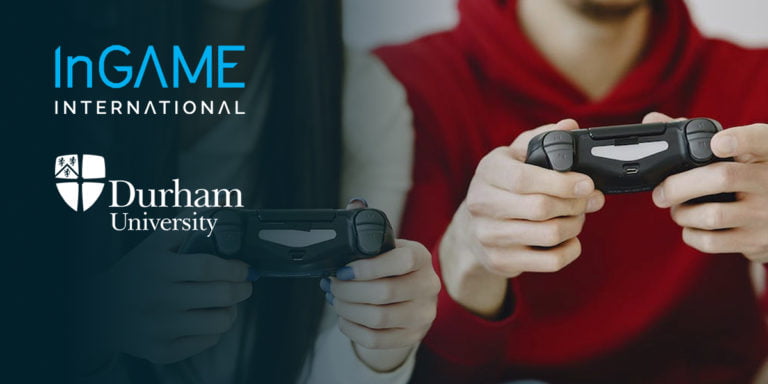May 26
Time:04:00 pm - 05:30 pm
Event Category: Click to Register: https://www.eventbrite.co.uk/e/historical-truth-in-videogames-tickets-150883638023Historical Games Network
Introduction
The Historical Games Network brings you a panel of leading academics and industry thinkers to explore truth and authenticity in videogames.
Questions about “truth” in popular culture and discourse have been ever-present in recent years, but the practice of history has long been grappling with and debating what “historical truth” means or looks like, as it relates to understanding and representing the past. Like other media industries with a longer history of reimagining and writing their own histories, games routinely become sites around which (implicit or explicit) “truth” claims are made, negotiated, and contested. Critics, players, and the industry itself often do so by deploying a number of other terms, equally ambiguous and disputed in meaning: “accuracy”, “realism”, and “authenticity” being those most often used to stake or undermine particular claims (e.g. Salvati and Bullinger, 2013; Shaw, 2015; Wright, 2017; Lorber and Zimmermann, 2020).
So, when we ask questions about what it means to be “truthful” when engaging with history, what are we actually asking? What responsibility do game makers have to “tell the truth” about the pasts they seek to represent? Likewise, what responsibility do critics have when approaching these complex issues?
Ultimately, how can we navigate the complicated, but often productive ways that games relate to understandings of history while creating new opportunities for dialogue and collaboration between researchers, teachers, developers, heritage professionals, and beyond.
Speakers
Ylva Grufstedt is a postdoctoral researcher at Aalto University and a guest researcher at the University of Helsinki. Her main research interests are the various interplays of history and game design. She obtained her doctoral degree at the University of Helsinki in 2020 with a research project on the game design and design practices of counterfactual history in digital strategy games. She is currently a part of the Playable Concepts project that addresses game design tools and games as partial and embedded in textual contexts. She also studies historians as integrated or outegrated experts in making games about the past.
Javier Rayón is the writer and director of Dream of Darkness, a Lovecraft+Aztecs video game for PC. With his startup he tells the real mysteries of history, starting with his hometown of the Aztec capital of Tenochtitlán, current Mexico City. Javier founded his game startup, studied his BA in game design, and consults with historians and archeologists, so their findings and questions resound with the general public. In the past he has appeared in Shark Tank, received Mexico’s Ministry of Economy Innovation Grant, and prevented high-risk incidents in the oil industry with VR training. He loves mezcal, coffee, and salsa dancing. http://dreamofdarkness.com/
John Glancy is the Executive Producer for Schools and Families at Imperial War Museums where he manages a national programme that covers IWM’s five branches and online. John and his team are currently developing a new Holocaust Learning programme in collaboration with a leading digital studio and Oliver award winning dramaturg which will be launched in late 2021 . Previous to working in heritage John worked extensively in theatre across the UK as an actor, director and producer including periods as Head of Creative Learning at the Royal Lyceum in Edinburgh and Schools Producer at the Lyric Hammersmith. John’s creative practise is deeply rooted in telling real stories about real people inspired by both local and global history. John believe all culture is fundamentally storytelling and these stories are vital to engaging hard to reach audiences as it’s an approach everyone can contribute to. He currently lives in Edinburgh with his partner and new baby daughter. He loves all aspects of History, is an occasional stand-up comedian and is a passionate advocate for the cultural value of Professional Wrestling.
Adam Chapman (Chair) is a former senior lecturer at the University of Gothenburg currently working as an independent scholar. His research focuses on historical games, i.e. those games that in some way represent, or relate to, discourses about the past. He is the author of Digital Games as History: How Videogames Represent the Past and Offer Access to Historical Practice (Routledge 2016), alongside a number of other publications exploring games as a historical form. He has been writing on the topic of historical games since 2009 and is also the founder of the Historical Game Studies Network. Adam can be contacted on Twitter at @Woodlandstaar.
About the Historical Games Network
The Historical Games Network brings together academics, game makers and other cultural workers to explore the relationship between history and games of all kinds.
We aim to engage a diversity of perspectives, to support – and offer a platform to – new voices in the field, and to speak to a broad audience, both professional and public.
About InGAME
InGAME: Innovation for Games and Media Enterprise is an £11.5 million pound R&D Centre based in the heart of the Dundee videogames cluster. Led by Abertay University, in partnership with the University of Dundee, the University of St Andrews and local and international industry partners, InGAME delivers innovative research and R&D support services to games companies in the city and beyond. InGAME is part of the Creative Industries Cluster Programme, funded by the Arts & Humanities Research Council and part of the Industrial Strategy. We also receive significant funding from the Scottish Funding Council.










